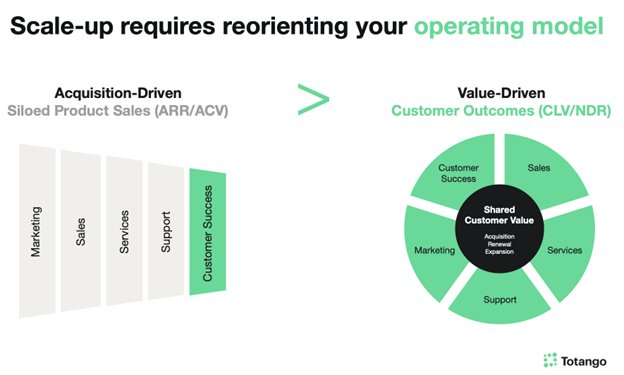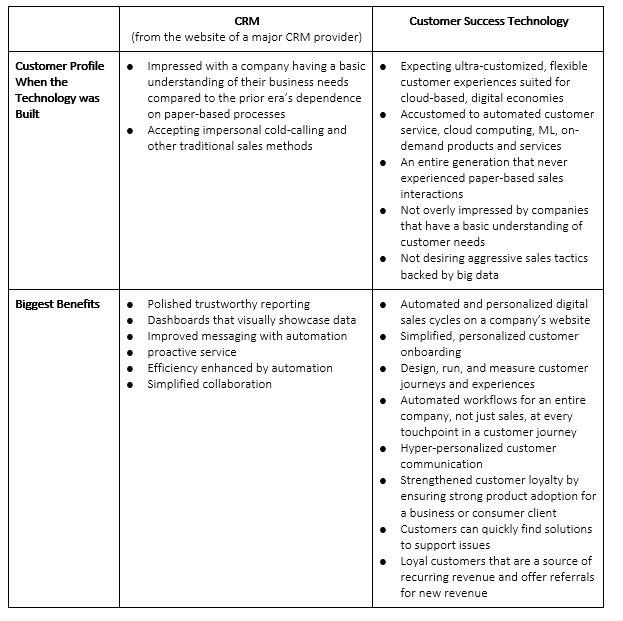The end of CRM?
Innovation has led to the age of customer success

Flip. Flip. Flip. Keep flipping. Flip some more. Ugh, can you believe there was a time when businesses used the Rolodex to manage their customers? And that was considered flipping fantastic!
Even as customer relationship management technology began to explode in the late ‘90s and CRM products became more powerful, many executives clung to the comfort of their trusty Rolodexes.
Jamie Bertasi, president and COO of Totango.
Now two decades later, innovation has led to the age of customer success. With agile technology that empowers your company to improve your customers’ experience at every stage of their journey – from sales and onboarding to renewal and upsell – there’s just no reason to waste your time flipping through outdated reports, spreadsheets, and sticky notes. Which begs the question:
Can you believe some businesses still cling to CRM to manage their customer journeys today?
As technology continues to offer more powerful and innovative solutions, a company that clings to yesterday’s “cutting-edge” way of doing business is sure to be left in the dust – whether you're an industry leader like once-beloved Blockbuster or a small startup ready to make your mark.
The promise of success
In the wake of the cloud revolution, COVID-19 and ongoing economic instability have only accelerated our shift into a digital-first era ruled by recurring revenue and subscription services. Customers expect products and solutions to be faster, easier, and better than ever, but they can still be your life raft in a recession – as long as you deliver value continuously!
That’s why the reactive days of customer support and simple CRM actions are behind us and the 2020s are rapidly becoming the decade of customer success.
Managing customer relationships today is about crafting journeys that improve your customers’ experience – which means mapping out steps in their interactions with your brand and implementing best practices so you can deliver satisfying outcomes at key touchpoints. With a new focus on customer outcomes and delivering immediate value from Day 1, businesses must move beyond the venerable acquisition-driven sales funnels of yesterday to embrace a value-driven model that invites all teams to collaborate for the customer.

Time has become our most valued commodity, and there’s no longer room for siloed workflows and data, let alone managing customer portfolios by pulling reports from multiple sources and manually mapping data together in spreadsheets that quickly become outdated. And don’t get me started on the inefficiency of managing your tasks and teams via Outlook and sticky notes.
The right customer success technology empowers companies to collaborate on a shared platform that unites them around targeted engagements, real-time customer health data and reporting, and powerful automation. Instead of sticky notes, your account managers can rely on automated task reminders and real-time system generated portfolio management – which means sharper focus with precious time spent on critical tasks.
CRM vs. Customer Success
There’s no denying legacy technologies help sustain the lifeblood of businesses even as new innovations arise. Amid the challenges of an unstable economy and the growth of customer success, we’re entering that moment for CRM.
With CRM quickly becoming a legacy solution for today’s digital economy, the following table illustrates how and why CS technology is being embraced by forward-thinking companies:

In any market, holding tightly to legacy technology is the choice for laggards – not for customer-centric leaders who understand that investing in customer success and protecting your customer base is the best way to grow and scale your business amid today’s challenges.
You simply can’t afford to make the mistake of trying to grow your business with the technical equivalent of a Rolodex.
Are you a pro? Subscribe to our newsletter
Sign up to the TechRadar Pro newsletter to get all the top news, opinion, features and guidance your business needs to succeed!
Jamie Bertasi, president and COO of Totango.